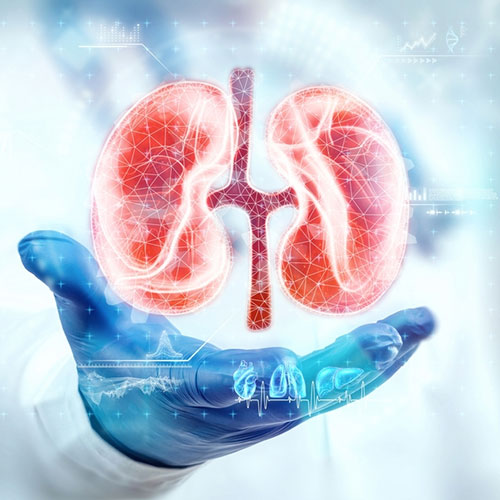Nephrologist in Anantapur
Visiting a Nephrologist is crucial for Health
Nephrology at Nephrology Hospital in Anantapur is a medical speciality that encompasses both adult internal medicine and pediatric medicine, focusing on the study of the kidneys. This field addresses normal kidney function, kidney diseases, the maintenance of kidney health, and the treatment of kidney disorders through various means, including dietary management, medication, and renal replacement therapies. Nephrology involves the diagnosis, treatment, and management of kidney functions, as well as renal replacement options such as dialysis and kidney transplantation.
When to visit a Nephrologist?
Your family doctor or the neighbourhood physician plays a crucial role in the prevention and management of the initial phases of kidney disease. It is important to note that these early stages may occasionally present no symptoms or may exhibit nonspecific signs, including fatigue, difficulties with sleep, and variations in urinary output. Clinical assessment can reveal indications of declining kidney function, including a reduction in the GFR value or an elevation in urine albumin levels. Should your test outcomes demonstrate a swift or ongoing decline in kidney function, your physician may recommend a consultation with a nephrologist or the Best Kidney Doctor in Anantapur, Dr. M. Surendra Babu.

Chronic kidney disease manifests gradually as kidney damage progresses at a slow pace. The decline in kidney function can lead to an accumulation of fluids, waste products, or imbalances in electrolytes. The severity of kidney function loss can result in various symptoms, including:
- Nausea
- Vomiting
- Decreased appetite
- Fatigue and weakness
- Sleep disturbances
- Altered urination patterns
- Reduced cognitive clarity
- Muscle cramps
- Swelling in the feet and ankles
- Dry, itchy skin Difficult-to-manage high blood pressure (hypertension)
- Shortness of breath due to fluid accumulation in the lungs
- Chest pain resulting from fluid buildup around the heart's lining
It is important to note that the signs and symptoms associated with kidney disease are often nonspecific, meaning they may also arise from other medical conditions. Additionally, due to the kidneys' ability to compensate for lost function, noticeable signs and symptoms may not appear until significant and irreversible damage has occurred.
The importance of a Nephrologist
Note that inn the initial phases of chronic kidney disease, individuals may exhibit minimal signs or symptoms. It is often the case that one remains unaware of having kidney disease until it reaches a more advanced stage. The management of chronic kidney disease at Sunray SVR hospital which is one of the Best Kidney Hospital in Anantapur, primarily aims to slow the advancement of kidney damage, typically by addressing the underlying cause. However, even with effective management of the cause, it may not be possible to prevent further deterioration of kidney function. Chronic kidney disease has the potential to advance to end-stage kidney failure, a condition that is life-threatening without the intervention of artificial filtration methods such as dialysis or a kidney transplant.
It is crucial to seek immediate medical assistance if you experience pain so intense that you are unable to remain still or find a comfortable position, pain accompanied by nausea and vomiting, pain accompanied by fever and chills, presence of blood in your urine, difficulty in urination. The pain associated with a kidney stone may vary, potentially shifting to different areas or intensifying as the stone progresses through the urinary tract. It is thus imperative to take a note and proceed to Nephrologist in Anantapur immediately for pain relief and proper diagnosis of the medical condition.
